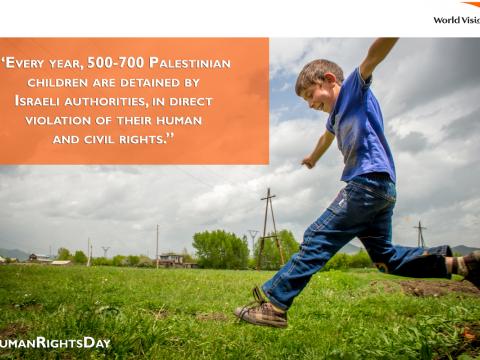Human rights are universal but access to them isn't

In 1948 world leaders agreed upon Universal Declaration of Human Rights, a document that set out, for the first time, the fundamental human rights that are to be universally protected.
Unfortunately, in 2015, more than 60 years after these universal rights were agreed upon, millions of people around the world still do not enjoy them or the freedoms: of speech; of worship; from want and from fear they are designed to provide. Children are among those most vulnerable to having their rights denied.
In Afghanistan, discrimination against women and girls continues to be widespread. In Badghis province where Ghoncha lives with her three daughters, women are often treated as possessions and regularly denied many of their fundamental rights, such as the right to an education. Only 2 per cent of women here are literate and more than 60 per cent of girls are married before they are 18, like Ghoncha was.
In Albania, Armenia, Azerbaijan and Georgia cultural practices and beliefs lead to discrimination against girls and women so significant that many baby girls don’t make it to birth. In Armenia, boys under the age of 15 outnumber females by 39,000. Only China, with an official policy that limits the number of children per family had a larger percentage discrepancy between boys and girls at birth (during 2010 and 2011). Anahit* is just one woman who regrets the decision to cave to cultural pressures and choose prenatal sex-selection, denying her the right to life.
In many places around the world and in several countries where World Vision is working across the Middle East, Eastern Europe and the Southern Asia region societies continue to exclude individuals with any kind of disability from living life to its fullest and enjoying the freedoms and rights they are entitled to as humans. In Pakistan, an estimated 1.4 million people, like Zara (who was paralyzed as the result of polio as a child), are denied the opportunity and the right to an education.
Although many countries have systems to protect the rights of its citizens; laws, structures and procedures often exclude large groups of people from these resources and their ability access to their rights. One of the most vulnerable groups of people are those, who for various reasons, are not registered at birth. Although birth registration is the easiest and most common registration process, barriers to birth registration persist. Lack of registration is often the result of other factors including discrimination and poverty. The effects of not being registered snowball over time and often lead to the inability to: access services (including health and education), work formally and access the protections available.
As we celebrate the creation of this milestone document on December 10 more than 60 years ago, World Vision calls on individuals, organisations and governments to do their part to ensure all people enjoy access to their foundational rights as humans.